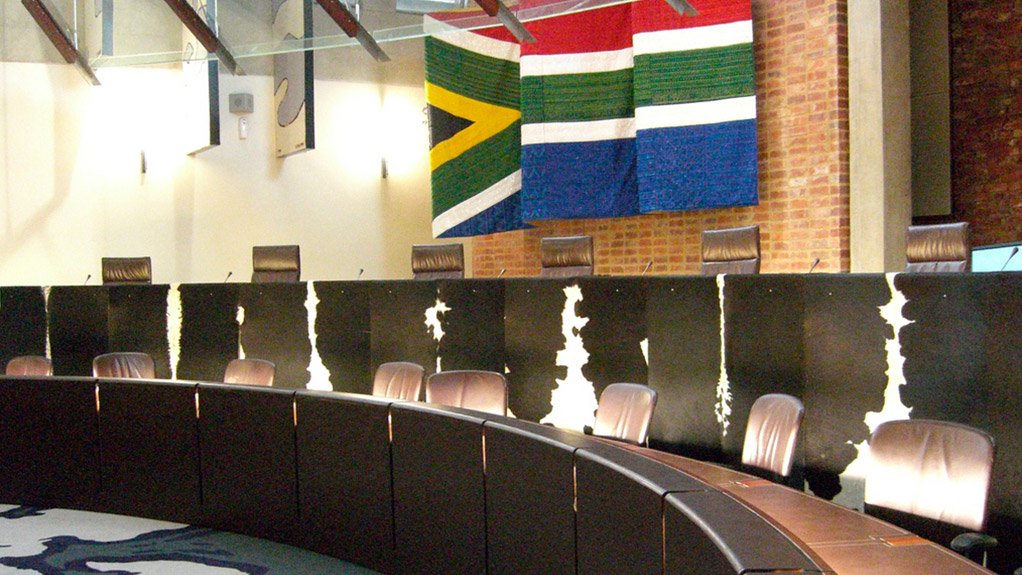/ MEDIA STATEMENT / The content on this page is not written by Polity.org.za, but is supplied by third parties. This content does not constitute news reporting by Polity.org.za.
The Centre for Constitutional Rights (the CFCR) welcomes a recent statement by Minister Susan Shabangu, Minister of Women in the Presidency, that the Women Empowerment and Gender Equality Bill (the WEGE Bill) will be withdrawn for further consultation.
It further welcomes that, according to reports on the Minister's presentation to the Portfolio Committee on Women's meeting of 1 July 2014, "the focus... would not be so much on achieving numbers instantly but ensuring mechanisms put in place to achieve equal representation, and ensure that those mechanisms would empower all women."
In written and oral submissions to the National Assembly earlier this year, the CFCR welcomed the Bill's objectives to the extent that it aimed to achieve equality and gave effect to equal enjoyment of all rights and freedoms. Nonetheless, the Centre brought certain constitutional inadequacies to the attention of the relevant Portfolio Committee. These included the lack of criteria in terms of which the Minister could exercise the power to designate organisations (which arguably rendered the Bill vague, not of general application and failing the test for legality); the manner in which the Bill sought to pursue the achievement of substantive equality ("a minimum of 50 percent" representation, which in itself is paradoxical, since anything more than 50% representation will, in effect, create a new inequality); the Bill's relation to other applicable legislation; and the Bill's failure to recognise the constitutional mandate of the Commission for Gender Equality (the Commission) as an independent institution supporting constitutional democracy in terms of Chapter 9 of the Constitution.
The fact that the Bill failed to recognise the role and function of this constitutionally mandated body is perhaps one of the greatest flaws of the Bill - the reason being that it potentially weakens the position of an independent institution that must strengthen constitutional democracy in South Africa in terms of Chapter 9 of the Constitution.
The Commission's mandate is derived from sections 181 and 187 of the Constitution. Section 181 provides that the Commission is "independent, and subject only to the Constitution and the law, and... must be impartial and must exercise their powers and perform their functions without fear, favour or prejudice". In turn, section 187 determines that the Commission must promote respect for gender equality and the protection, development and attainment of gender equality and has the power to monitor, investigate, research, educate, lobby, advise and report on issues concerning gender equality. Section 181 of the Constitution determines that "...Other organs of state, through legislative and other measures, must assist and protect these institutions to ensure the independence, impartiality, dignity and effectiveness..." and "...No person or organ of state may interfere with the functioning of these institutions". In addition, section 11(1)(a) of the Commission for Gender Equality Act provides that the Commission shall "monitor and evaluate policies and practices of organs of state, statutory bodies or functionaries, public bodies and authorities and private businesses and institutions, in order to promote gender equality." The Bill, however, failed to consider these constitutional and legislative provisions and proposed a duplication of roles which, at best, would result in a diminished role and recognition of the Commission as a Chapter 9 institution.
The achievement of equality and non-‐sexism are two of the founding values of the Constitution. Section 9 of the Constitution gives effect to these values by creating the right to equality before the law and equal protection and benefit of the law. However, any legislation or policy aimed at giving effect to these values and rights must do so in a manner that is rational and in accord with other provisions of the Constitution. It must involve proper public participation and consultation and it must address the concerns raised during such consultations. The drafting of a revised Bill seeking to promote and realise gender equality must also involve continuous consultation with the Commission and must compliment and strengthen the role and function of the Commission, as required by the Constitution.
EMAIL THIS ARTICLE SAVE THIS ARTICLE
To subscribe email subscriptions@creamermedia.co.za or click here
To advertise email advertising@creamermedia.co.za or click here











